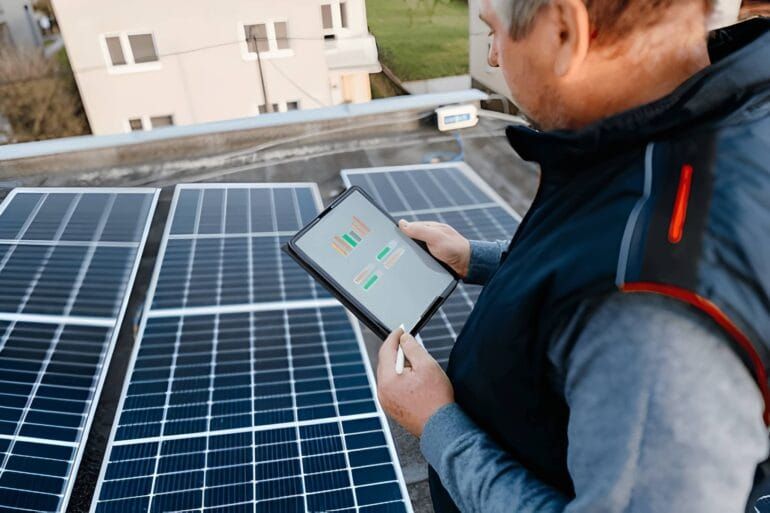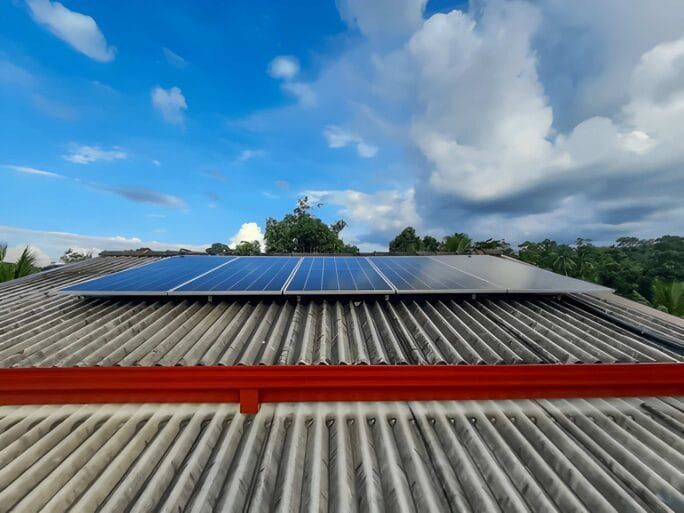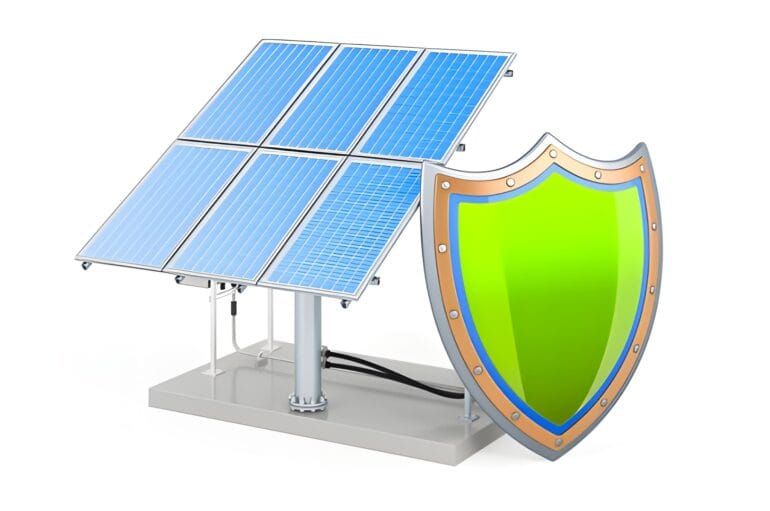Welcome to our guide on the benefits of solar panels! Aussies know the value of tapping into our abundant sunshine for energy needs. In this blog, we’ll explore the myriad advantages that solar panels bring to homes and businesses. From saving on electricity bills to reducing our environmental footprint, solar power offers a wealth of benefits. So, grab a cuppa and join us as we shed some light on why solar energy is a bright idea for households and businesses alike.
Overview of Solar Panels
Solar panels, also known as photovoltaic (PV) panels, are devices that convert sunlight into electricity. Made up of silicon cells, solar panels harness the sun’s energy through the photovoltaic effect, generating direct current (DC) electricity. This electricity is then converted into alternating current (AC) by inverters, making it usable for powering homes, businesses, and other applications. Solar panels come in various sizes and configurations, from small residential installations to large-scale solar farms. They can be mounted on rooftops, ground-mounted in open spaces, or integrated into building structures.
Importance of Understanding Benefits of Solar Panels
Understanding the benefits of solar panels is crucial for individuals and businesses considering adopting solar energy solutions. Solar panels offer a range of advantages that make them an attractive option for meeting energy needs sustainably.
By comprehending the benefits, individuals can make informed decisions about whether solar panels align with their goals and priorities. It allows them to evaluate the potential cost savings, environmental impact, and energy independence that solar energy offers. Moreover, understanding the benefits empowers individuals to effectively communicate the advantages of solar energy to others, fostering greater awareness and adoption of renewable energy technologies. Ultimately, understanding the benefits of solar panels enables individuals and businesses to harness the full potential of solar energy, contributing to a more sustainable and resilient energy future.
Cost Savings
Understanding the cost savings associated with solar panels is essential for individuals and businesses considering adopting solar energy solutions.
Reduction in Electricity Bills
One of the most significant benefits of solar panels is the reduction in electricity bills. By generating electricity from sunlight, solar panels offset the need for grid-supplied electricity, leading to lower monthly utility bills. Solar panel owners can generate their electricity during the day when the sun is shining, reducing or even eliminating their reliance on electricity from the grid. This can result in substantial savings over time, especially as electricity prices continue to rise.
Return on Investment (ROI) through Energy Savings
Investing in solar panels can offer a significant return on investment (ROI) through energy savings. While there is an initial upfront cost associated with purchasing and installing solar panels, these costs can often be recouped over time through reduced electricity bills. As solar panels generate electricity, homeowners and businesses can save money on their energy expenses, allowing them to recover the initial investment and even generate additional savings over the life of the system. Calculating the ROI of solar panels involves considering factors such as the cost of the system, the amount of energy generated, and the savings achieved through reduced electricity bills.
Government Incentives and Tax Credits
In addition to direct cost savings, solar panel owners may also benefit from government incentives and tax credits designed to promote renewable energy adoption. Many governments offer financial incentives, such as rebates or grants, to offset the upfront cost of installing solar panels. Additionally, tax credits may be available to homeowners and businesses that invest in solar energy systems, allowing them to deduct a portion of the system’s cost from their federal or state income taxes. These incentives and tax credits can significantly reduce the overall cost of solar panel installation, making solar energy more accessible and affordable for a wider range of individuals and businesses.
 Environmental Impact
Environmental Impact
Understanding the environmental impact of solar panels is crucial for recognizing the broader benefits of renewable energy adoption.
Reduction in Greenhouse Gas Emissions
One of the primary benefits of solar panels is their ability to reduce greenhouse gas emissions. Unlike traditional fossil fuel-based electricity generation, which releases harmful greenhouse gases such as carbon dioxide (CO2) and methane (CH4) into the atmosphere, solar panels generate electricity without producing any emissions. By harnessing the power of sunlight, solar panels provide a clean and renewable energy source that helps mitigate the negative environmental impacts associated with burning fossil fuels for electricity generation. This reduction in greenhouse gas emissions is essential for combating climate change and reducing air pollution, leading to improved air quality and public health outcomes.
Contribution to Renewable Energy Generation
Solar panels play a significant role in increasing the proportion of renewable energy in the overall energy mix. As renewable energy sources such as solar, wind, and hydroelectric power become increasingly important for meeting global energy demand, solar panels offer a scalable and sustainable solution for generating clean electricity. By converting sunlight into electricity, solar panels contribute to the diversification of the energy supply, reducing reliance on finite fossil fuel resources and promoting energy security and independence. Additionally, solar energy systems can be deployed on a wide range of scales, from individual rooftop installations to utility-scale solar farms, making them accessible and adaptable to various energy needs and geographic locations.
Mitigation of Climate Change Effects
The adoption of solar panels can help mitigate the effects of climate change by reducing greenhouse gas emissions and promoting sustainable energy practices. Climate change poses significant risks to ecosystems, economies, and communities worldwide, including rising temperatures, extreme weather events, and sea-level rise. By transitioning to renewable energy sources like solar power, society can reduce its carbon footprint and limit the severity of these impacts. Solar panels offer a practical and effective solution for addressing climate change by providing a clean, reliable, and abundant source of energy that can help stabilize the Earth’s climate system.
Energy Independence
Understanding the concept of energy independence is vital for recognizing the benefits of solar panels in achieving self-sufficiency in energy production.
Decreased Reliance on Traditional Energy Sources
Solar panels offer the advantage of decreasing reliance on traditional energy sources such as fossil fuels and grid-supplied electricity. By generating electricity from sunlight, solar panels provide an alternative energy source that reduces dependence on finite and environmentally harmful fuels like coal, oil, and natural gas. This decreased reliance on traditional energy sources not only helps mitigate environmental impacts but also reduces vulnerability to supply disruptions and price volatility associated with fossil fuel extraction and transportation.
Protection Against Energy Price Fluctuations
One of the significant benefits of solar panels is their ability to protect against energy price fluctuations. Unlike conventional energy sources, which are subject to market forces and geopolitical factors that can cause energy prices to fluctuate unpredictably, solar energy offers a stable and predictable source of electricity. Once solar panels are installed, the cost of generating electricity from sunlight remains relatively constant over time, providing homeowners and businesses with greater certainty and control over their energy expenses. This protection against energy price fluctuations is particularly valuable in regions with volatile energy markets or where electricity prices are prone to seasonal variations.
Enhanced Energy Security
Solar panels contribute to enhanced energy security by diversifying the energy supply and reducing dependence on centralized energy infrastructure. In traditional energy systems, power generation is centralized in large-scale power plants, often located far from where electricity is consumed. This centralized model is vulnerable to disruptions caused by extreme weather events, natural disasters, or cyberattacks, which can lead to widespread power outages and economic disruptions. By contrast, solar panels enable distributed generation of electricity, with power generated onsite and consumed locally. This decentralized approach enhances energy security by reducing the risk of single points of failure and increasing the resilience of the energy system.
Low Maintenance
Understanding the low maintenance requirements of solar panels is essential for appreciating their long-term reliability and cost-effectiveness.
Minimal Upkeep Required for Solar Panels
One of the key benefits of solar panels is their minimal upkeep requirements. Unlike traditional energy systems that rely on moving parts and regular maintenance to function properly, solar panels are relatively simple devices with few components that can wear out or break down. Generally, solar panels require periodic cleaning to remove dust, dirt, and debris that may accumulate on the surface and reduce energy production. However, this maintenance task is straightforward and can typically be performed using basic cleaning equipment such as a hose and soft brush.
Long Lifespan and Durability
Solar panels are known for their long lifespan and durability, making them a reliable and sustainable energy solution for decades to come. Most solar panels come with warranties ranging from 20 to 25 years, guaranteeing their performance and power output over an extended period. With proper installation and maintenance, solar panels can continue to generate electricity efficiently for 25 years or more, providing a reliable source of clean energy for homes and businesses. Solar panels are constructed using high-quality materials such as tempered glass, aluminum frames, and weather-resistant coatings, ensuring their resilience to environmental stresses and degradation.
Warranty and Service Options
Solar panel manufacturers typically offer warranty and service options to provide additional peace of mind to solar panel owners. These warranties typically cover defects in materials and workmanship, as well as guarantees on power output and performance. In the event of a warranty claim, solar panel manufacturers may repair or replace the defective panels at no cost to the owner, ensuring that the system continues to operate as intended. Many solar installers offer service and maintenance packages to help homeowners and businesses keep their solar panels in optimal condition. These service options may include regular inspections, cleaning, and performance monitoring to ensure that the system is operating efficiently and producing maximum energy output.
 Increase in Property Value
Increase in Property Value
Understanding the benefits of solar panels contribute to an increase in property value is crucial for homeowners considering investing in renewable energy.
Boost in Home Resale Value
One of the significant benefits of solar panels is their ability to boost home resale value. Properties equipped with solar panels are perceived as more desirable by homebuyers due to the potential cost savings on electricity bills and the environmental benefits associated with renewable energy. Studies have shown that homes with solar panels tend to sell faster and at a higher price compared to similar homes without solar installations. This boost in resale value can provide a significant return on investment for homeowners who choose to install solar panels, offsetting the initial upfront cost of the system.
Attraction for Eco-Conscious Buyers
Solar panels also attract eco-conscious buyers who prioritize sustainability and environmental responsibility when purchasing a home. As awareness of climate change and environmental issues continues to grow, more homebuyers are seeking properties equipped with renewable energy systems like solar panels. These buyers are willing to pay a premium for homes that align with their values and offer long-term sustainability benefits. By installing solar panels, homeowners can appeal to this demographic and broaden the pool of potential buyers for their property, increasing the likelihood of a quick and profitable sale.
Positive Impact on Property Appraisal
In addition to boosting home resale value, solar panels can have a positive impact on property appraisal. Appraisers consider the presence of solar panels as a desirable feature that adds value to a property. Solar panels are viewed as a long-term investment that enhances the overall quality and sustainability of a home, leading to higher appraised values. This increase in property appraisal can result in favorable financing terms for homeowners, such as higher loan-to-value ratios and lower interest rates.
Community Benefits
Understanding the community benefits of solar panels is essential for recognizing their broader impact on local energy systems and sustainability efforts.
Support for Local Energy Initiatives
Solar panels contribute to local energy initiatives by decentralizing power generation and increasing community resilience to disruptions in the centralized grid. By generating electricity onsite, solar panels reduce the need for long-distance transmission of power, minimizing energy losses and enhancing the reliability of the local energy supply. Community-based solar projects allow residents to collectively invest in and benefit from renewable energy, fostering a sense of ownership and empowerment within the community. These initiatives create opportunities for local partnerships and collaboration, driving economic growth and innovation in the renewable energy sector.
Promotion of Sustainable Development
Solar panels play a crucial role in promoting sustainable development by reducing reliance on fossil fuels, mitigating climate change, and preserving natural resources. As communities seek to transition to cleaner and more sustainable energy sources, solar panels offer a practical and scalable solution for meeting energy needs while minimizing environmental impacts. By harnessing the power of sunlight, communities can reduce greenhouse gas emissions, improve air quality, and protect ecosystems, contributing to a healthier and more resilient environment for current and future generations.
Education and Awareness Building
Solar panels contribute to education and awareness building by raising public awareness about renewable energy technologies and their benefits. Through community outreach programs, workshops, and educational events, solar energy advocates can engage residents and stakeholders in discussions about the importance of transitioning to clean energy sources and reducing carbon emissions. These initiatives provide opportunities for hands-on learning and practical experience with solar technology, empowering individuals to make informed decisions about energy use and conservation. By fostering a culture of sustainability and environmental stewardship, solar panels inspire future generations to embrace renewable energy solutions and drive positive change in their communities.
Conclusion
The benefits of solar panels extend far beyond individual households or businesses, encompassing broader environmental, economic, and social advantages for communities. Solar panels offer cost savings, environmental sustainability, energy independence, and resilience against energy price fluctuations. They also contribute to increased property values, promote sustainable development, and support local energy initiatives. By harnessing the power of sunlight, communities can reduce greenhouse gas emissions, improve air quality, and create opportunities for economic growth and innovation in the renewable energy sector. As the demand for renewable energy continues to grow, solar panels will play an increasingly important role in shaping a more sustainable and resilient future for generations to come.
FAQs
Are there any government incentives available for installing solar panels?
Yes, many governments offer incentives such as rebates, tax credits, and feed-in tariffs to encourage the adoption of solar energy.
How long do solar panels last?
Solar panels typically come with warranties ranging from 20 to 25 years, but they can last much longer with proper maintenance.
Do solar panels work during cloudy days or at night?
While solar panels generate less electricity during cloudy days, they can still produce some power. At night, solar panels do not generate electricity, but energy stored in batteries can be used.

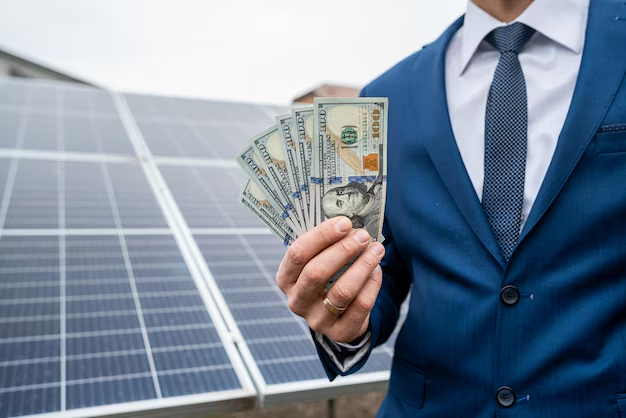 Environmental Impact
Environmental Impact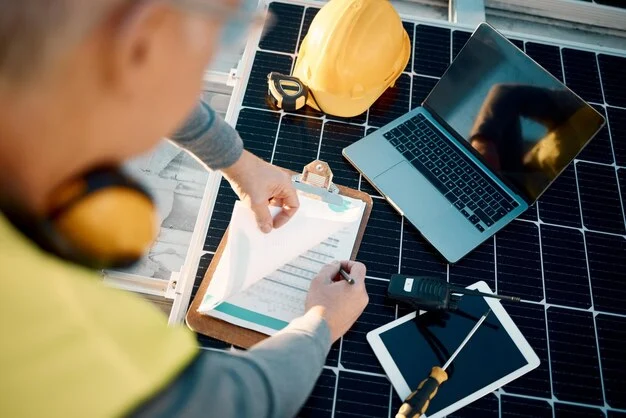 Increase in Property Value
Increase in Property Value